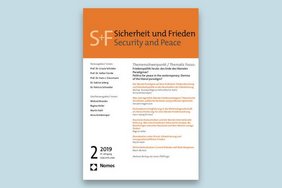The global power shifts challenge Western liberal democracies, the validity of their normative foundations, and their legitimacy as internal and external models of order like never before. Digitalization and technological progress are changing the structures and possibilities for action of societies worldwide. If globalization changes the conditions that are necessary to prevent, curb or end the use of collective violence, then the question arises as to how adaptable and effective traditional liberal peace concepts and strategies are today.
In its intermediate-term Work Program "Contemporary Peace Strategies – Peace and Security Policy at the Fault Lines of Globalization” (2013-2018), the Institute for Peace Research and Security Policy at the University of Hamburg (IFSH) critically examined the liberal paradigm in peace research and peace-oriented security policy in the context of globalization. This Special Issue, edited by Michael Brzoska, Regina Heller, Martin Kahl and Anna Kreikemeyer, summarizes the central work, presenting key findings and highlighting selected aspects.
You can order a copy from Nomos-Verlag.
